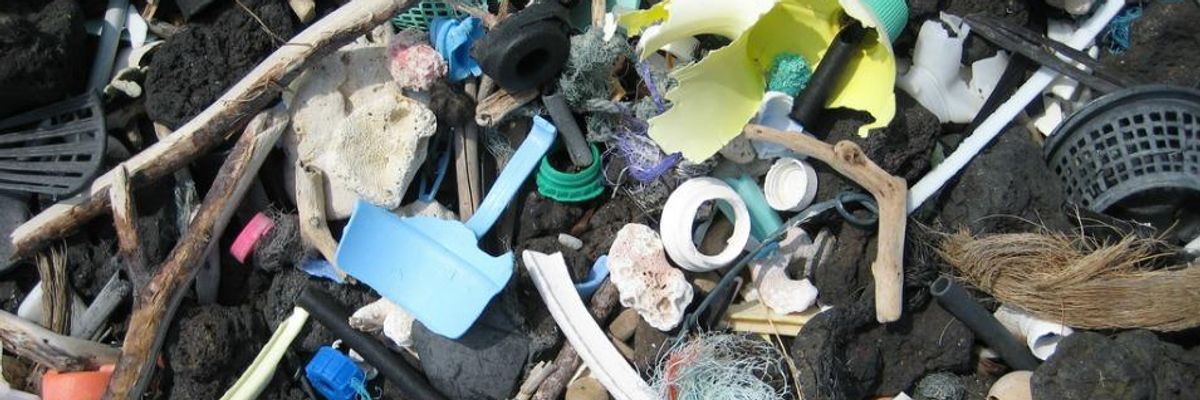Plastics in the world's oceans, whether floating or resting at the bottom, is a problem that's on the rise, and is said to have "reached crisis proportion."
And while they may be assumed to be more eco-friendly, plastics labeled "biodegradable" still pose a threat to marine environments, a new United Nations study has found.
The report from the UN Environment Programme (UNEP), Biodegradable Plastics and Marine Litter. Misconceptions, Concerns and Impacts on Marine Environments (pdf), explains how these products still fail to tackle the growing problem.
The agency's executive director, Achim Steiner, underscored the magnitude of the problem. "Recent estimates from UNEP have shown as much as 20 million tonnes of plastic end up in the world's oceans each year. Once in the ocean, plastic does not go away, but breaks down into microplastic particles."
The report notes that just what proportion of this plastic is biodegradable versus non-biodegradable has yet to be analyzed.
One of the problems, the report states, is that in order for some of the plastic debris to be completely broken down, conditions found in industrial compositing units that can achieve prolonged temperatures of above 50degC are needed. Yet those conditions "are rarely if ever met in the marine environment."
And while some have the inclusion of a pro-oxidant, which would induce degradation, "[t]he fate of these fragments (microplastics) is unclear, but it should be assumed that oxo-degradable polymers will add to the quantity of microplastics in the oceans, until overwhelming independent evidence suggests otherwise."
Contributing to the problem, the report says, is evidence suggesting the biodegradable label could make the public more likely to litter.
The report concludes that "the adoption of plastic products labelled as 'biodegradable' will not bring about a significant decrease either in the quantity of plastic entering the ocean or the risk of physical and chemical impacts on the marine environment, on the balance of current scientific evidence."
Peter Kershaw, one of the authors of the study, put the problem in blunt terms.
"Essentially the ocean is being used as a waste basket and the waste basket is getting fuller and fuller, and so the impacts of that plastic litter are just going to keep on increasing," he told CBC News.

